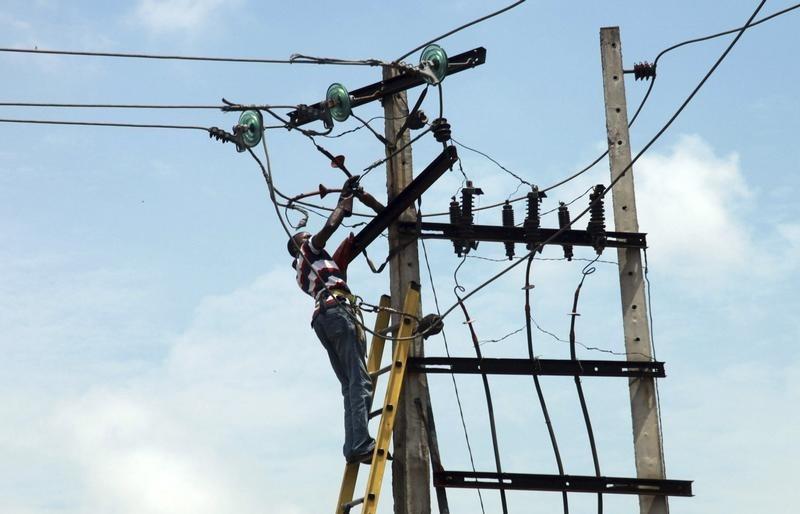
Manufacturers and organised Labour have kicked against the Federal Government’s 240 per cent hike in the tariff payable by electricity users enjoying a 20-hour power supply.
They insisted on the electricity subsidy, warning that its removal would send manufacturers out of business and worsen inflation.
The subsidy on electricity has been withdrawn completely from the tariff payable by power consumers in the Band A category, who constitute about 15 per cent of the total number of power users across the country.
The government announced the hike in the electricity bill at a press briefing in Abuja by NERC on Wednesday, adding that those affected would now pay a tariff of N225 per kilowatt-hour, up from the previous rate of N68/kWh, representing about 240 per cent increase. The government declared that the decision took effect from Wednesday (yesterday).
But the organised private sector, Nigeria Labour Congress, as well as the Trade Union Congress, kicked against the hiked tariff for power users, whether it was for those on Band A or not.
They argued that the hike in tariff would send manufacturers out of business, worsen inflation, and stifle small and medium enterprises, adding that no place in Nigeria enjoyed up to 20 hours of power supply daily.
Band A power users are those who get up to 20 hours supply of electricity daily and paid about N68/kWh before the implementation of this latest order by the Federal Government through NERC.
The Vice Chairman of NERC, Musiliu Oseni, told journalists in Abuja that the government could not sustain subsidy on electricity and had to devise ways to cut down the about N2.9tn that would be spent on power subsidy this year.
He explained that customers on Band A represented 15 per cent of the over 12.82 million registered electricity consumers across the country, adding that the commission had also downgraded some customers on this band.
Discos feeders downgraded
Oseni said the downgrading of some Band A customers to Bands B and C was because of the non-fulfillment of the required hours of electricity provided to them by power distribution companies in their respective franchise areas.
He said NERC was able to discover this after deploying technology to ascertain the rate of power supply from the feeders of the Discos meant for Band A power users.
“And on that basis, the commission has decided that many of the feeders that the Discos brandish as Band A feeders are not meeting the Band A service, and as such the feeders have been downgraded immediately as a way of protecting consumers.
“We have over 3,000 Discos feeders. There are over 875 Band A feeders, but upon reviewing the feeders’ performance, the commission has reduced it to under 500 feeders now, which qualify as feeders that currently meet the 20-hour average service.
“So when you look at that concerning the over 3,000 feeders that we have, it shows that we have just 17 per cent of the total feeders of the distribution companies now qualified as Band A feeders.
“And when you look at where those 17 per cent feeders critically, it is estimated that just under 15 per cent of customers are benefiting from them, or are currently connected to those feeders, meaning that we have 17 per cent of the total distribution feeders or less than 15 per cent of customers currently benefiting from the service,” Oseni stated.
He stressed that based on this, “the commission has decided that only the 17 per cent feeders and less than 15 per cent customers will be affected by any rate increase that the commission will approve for the distribution companies.
“Therefore the commission has issued an order, which is titled April 2024 Supplementary Order, which is supplementary to the order issued in December 2023 effective January 2024.
“So the April Supplementary Order takes effect from today and in that order, the commission has approved a rate review of N225/kWh for just under 15 per cent of the customer population in NESI. So that means that less than 15 per cent of the customers will be affected.”
He further noted that many customers previously classified as Band A power users would not be affected because they hardly get a daily average power supply of up to 20 hours.
Oseni said consumers affected by the latest tariff hike would henceforth pay their power bills completely by themselves, as the applicable subsidies on Bands B, C, D, and E would not be enjoyed by them.
He noted that these Band A customers had almost all the facilities required for the supply of electricity to their domains for 20 hours daily.
He, however, noted that about 20 per cent of these Band A customers were not metered, and explained that they would now receive a high concentration in terms of metering by the Discos.
“This, however, does not mean that customers in other bands have been neglected, no. Rather, the Discos will have to provide meters to this category of Band A customers fast, since their tariff is now N225/kWh,” the NERC vice chairman stated.
On the effect of subsidy in the sector, Oseni said it had been affecting the payments being made to power generation companies, adding that this “led to a situation whereby the Gencos were unable to make payments for gas.
“That also resulted in the reduction of gas supply for power generation because there is competitive demand for gas. You have so many other companies that require gas and can pay for it.
“So these issues have compounded the performance of the sector and that led to the dip in power generation that we experienced recently.”
He further noted that the recent increase in the price of gas for power generation from $2.28/mmbtu to $2.42/mmbu also warranted a hike in the cost of tariff, particularly for Band A customers.
However, the NLC described the decision of the Federal Government to hike the electricity tariff as insensitive and callous.
The NLC’s spokesman, Benson Upah, made this known in an interview with one of our correspondents.
He said, “The government’s decision is not only insensitive, it is callous. It further pauperises consumers, especially workers whose wages are fixed and insufficient.
“It similarly makes the operating environment more hostile for manufacturers with the potential for an astronomical rise in the cost of goods and services or the worst case scenario, more closures and loss of jobs.
“The only people who stand to gain from this mindless social violence against the people are the World Bank and IMF (International Monetary Fund).”
On their part, the Trade Union Congress said the Federal Government was only concerned about revenue generation to the detriment and survival of the citizens,Glitters reports.
……………
For Advertisement, Event Coverage, Public Relations, Story/Article Publication, and other Media Services, kindly send an email to: thelegendnews25@gmail.com. To stay updated with the latest news, health updates, happenings,Sports and interesting stories, visit thelegendnewsng.com . THE OBINJA MEDIA COMMUNICATIONS (Publisher of TheLegendNews/THELEGENDTV)










